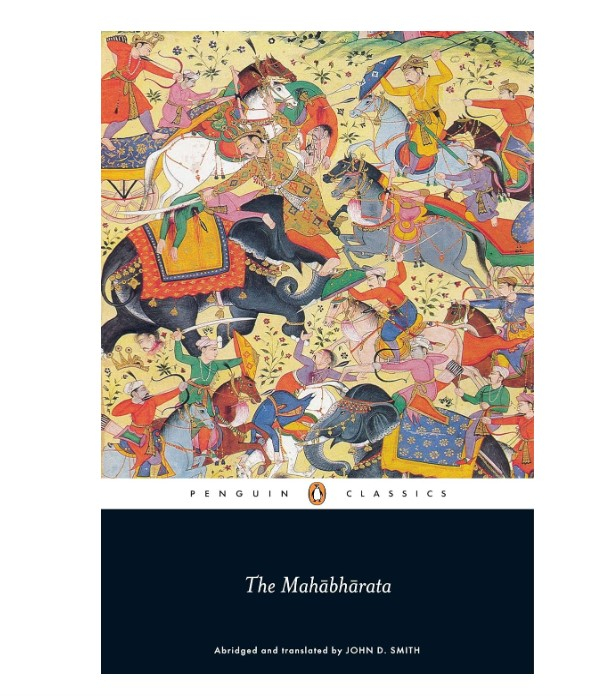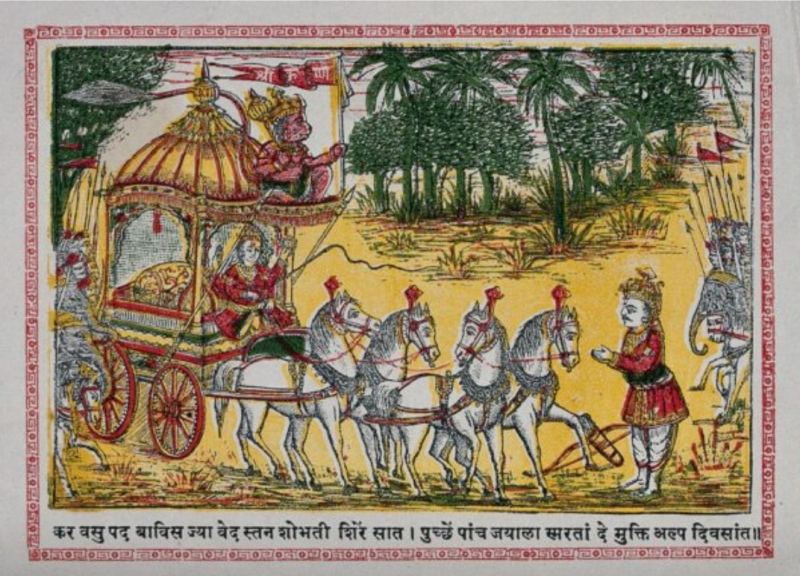Mahabharata

The Mahabharata, a colossal epic of ancient India, is known as one of the longest and most sacred texts of Hinduism. Comprising around 100,000 verses, this epic is undoubtedly a monumental literary and philosophical work. It is a guiding beacon, offering lessons on life, duty, and the eternal struggle between good and evil.
At its core, the Mahabharata narrates the conflict between two groups of cousins, the Pandavas and the Kauravas, over the throne of Hastinapura. Fueled by ambition, jealousy, and familial discord, the epic talks about complex relationships, moral dilemmas, and the clash between righteousness (dharma) and greed.
The Mahabharata isn't just about the war; it's a treasure trove of tales about bravery, devotion, love, and betrayal. It introduces larger-than-life characters like Arjuna, Yudhishthira, Draupadi, and the enigmatic Lord Krishna, each embodying distinct virtues and flaws. It explores topics of loyalty, sacrifice, justice, and the consequences of actions, emphasizing the importance of integrity even in the face of adversity.
The Mahabharata is not confined to a particular religious or cultural context; its influence extends far beyond the borders of Hinduism. Its stories have inspired countless adaptations, art forms, and moral discourses, making it a timeless epic that resonates across diverse cultures.
Link to buy: https://www.amazon.com/Mahabharata-Penguin-Classics/dp/0140446818
Link to read: https://sacred-texts.com/hin/maha/index.htm











